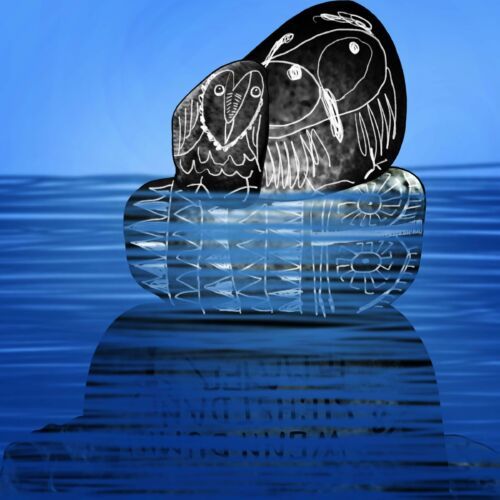Hunger stones, drought in Mongolia and the Zambezi drying up
Due to the drought and low water levels in Europe’s rivers, so-called hunger stones, testimonies to events from centuries ago – have been uncovered. Residents have carved signs on them to record the effects of the drought – the river water level, the date of the event or their initials. “Hunger stones”, found, for example, along the upper Elbe and Rhine rivers, hold valuable archival information from even more than 400 years ago: records accumulated over generations about drought and people’s dependence on the river for trade and food production.
Residents of Mongolia’s Tsaikhir Valley – perhaps one of the coldest places in the world – are also struggling with drought and increasingly warmer summers. Local yak herders and horse breeders complain of drying water sources and increasingly barren hillsides. Around one million Mongolians continue nomadic traditions that are closely linked to the environment. The increasing incidence of extreme climatic events – both droughts and famine-inducing, intensifying natural disasters known as dzud – disrupts the cultivation of ancient traditions on the Mongolian steppe.
At the end of November this year, authorities of the Kariba hydropower plant on the border between Zimbabwe and Zambia reported that due to the drought, water levels in the Zambezi River were at record lows, so electricity production had to be halted. The plant recently supplied around 70% of the electricity needed in the country, and this was using almost half the capacity of its 1,050 MW capacity. Electricity production at Kariba could start in January 2023.


























